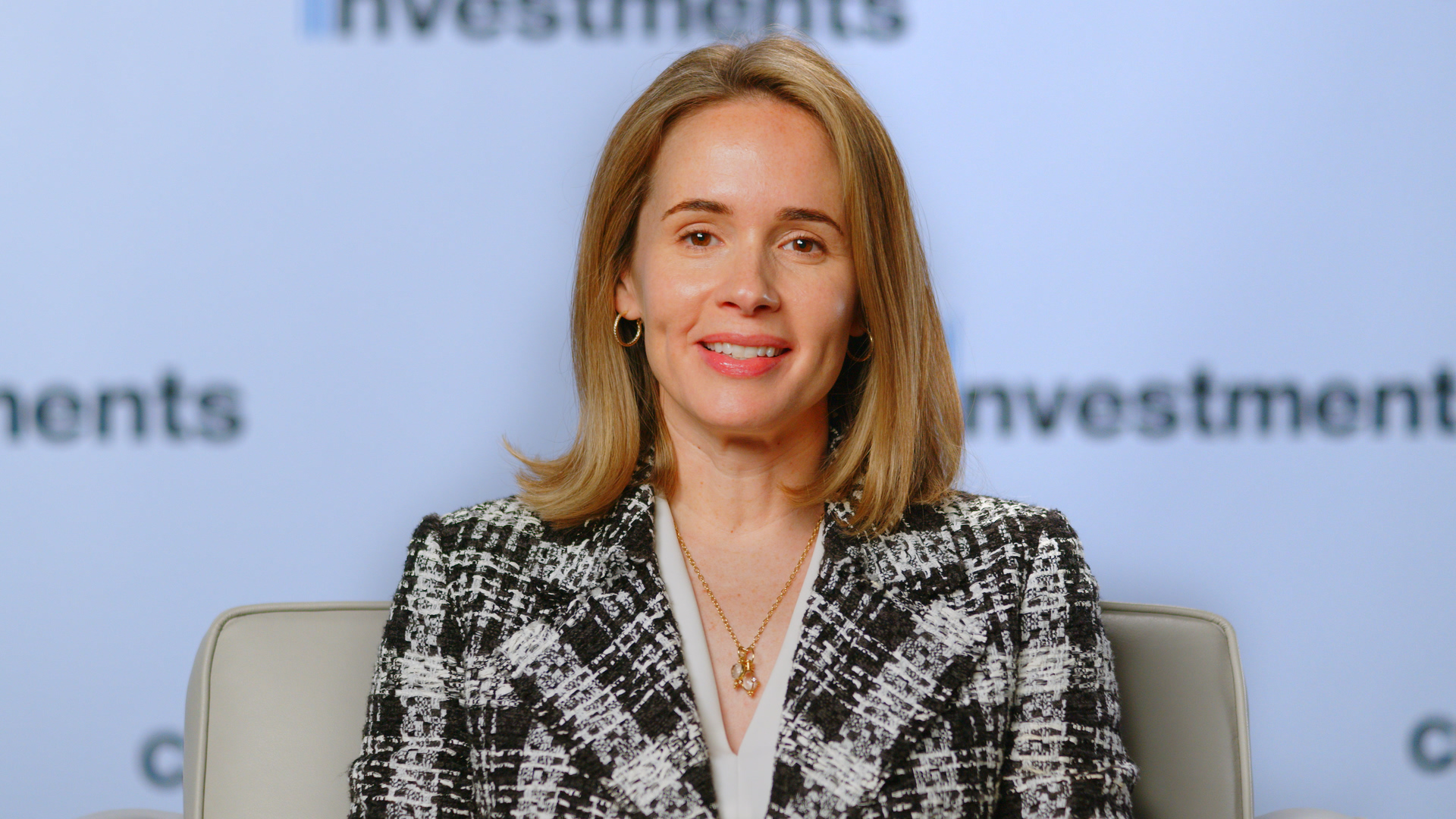This op-ed first appeared in the September 2023 edition of the Institute of Corporate Directors’ Chapter Zero Canada newsletter. You can learn more about Chapter Zero Canada here.
Despite the growing business importance and urgency of climate transition planning, many companies struggle to connect the dots between setting long-term GHG emissions reduction targets and adopting practical and feasible decarbonization strategies for achieving them. And this disconnect is already weakening expectations that they can meet their goals. According to research from Accenture, as of 2022, more than a third of the world’s largest companies have set net-zero targets. However, only 7% of those companies are predicted to achieve their targets by 2050 based on current trends, showing more needs to be done. Many board directors are unsure of which questions to ask to ensure the company is heading in the direction of net zero, at the speed required to preserve and maximize company value. And many board directors are unsure of which questions to ask to ensure the company is heading in the direction of net zero, at the speed required to preserve and maximize company value.
At CPP Investments, we have developed an open-source solution to address this lack of formal guidance related to transition planning and provide transparency to investors and boards. Our Abatement Capacity Assessment Framework is a tool to measure a company’s capacity for reducing emissions, providing a critical input for aligning targets with practical and implementable levers for achieving them. This unique tool helps companies, including those in which we invest, determine ways to reduce emissions from the real economy and drive long-term value.
Companies use the Framework to prepare a Projected Abatement Capacity assessment, which helps them identify and categorize decarbonization actions in terms of impact, technological readiness, and economic feasibility. The process is as follows:
- Determine a company’s current baseline emissions
- Identify actions that can cost-effectively cut emissions now (the current “Proven Abatement Capacity”)
- Assess steps and strategies that can cost-effectively reduce emissions in the future under different carbon price assumptions (the “Probable Abatement Capacity”)
- Finally determine how to address those emissions that are either not possible to abate or require over $150/tCO2e carbon price (the “Uneconomic Abatement Capacity”)
The Framework has already been successfully tested within our own portfolio companies, including the Trafford Centre, one of the UK’s largest shopping malls. The Centre used the Framework to provide a self- assessment which has helped it to better understand their capacity to economically abate GHG emissions under current state and share insights with its board and management to develop a robust transition plan. Based on the analysis, the company concluded that by 2030, 44% of its Scopes 1 and 2 emissions could be reduced by the expected decarbonization of the electricity grid supplying the Centre. Trafford’s Board Chair, Fraser Pearce, reported that one of the most important insights was how much could be achieved today at a relatively modest cost, noting the Framework “allows you to put that priority into a business plan, into a case, and then make sure that you’ve got the finance to do it.”
This example shows that beyond the numbers, the Framework can also provide board directors with the tools needed to gauge if company strategy is aligned with broader net-zero goals. This alignment is critical to the success of any long-term organizational strategy, such as a net zero commitment, particularly one with such importance and widespread impact. By having a logical and intuitive framework in place, company leaders can feel confident in communicating future expectations and needs with relevant stakeholders. Board directors can make sure they oversee climate change risk and opportunity in the best interests of shareholders, and companies can accelerate their progress toward their net zero ambitions, maximizing returns along the way.
When CPP Investments committed to net-zero greenhouse gas (GHG) emissions across our operations and portfolio by 2050, we did so on the basis that the global community will continue to advance towards the goal of achieving net-zero GHG emissions by 2050. We believe there is a clear connection between our portfolio’s performance and its ability to adapt to a net-zero world alongside the global economy.
Further, we believe that the companies most adept at managing climate change will ultimately create the most value. This belief translates not only into our expectations for portfolio companies and their boards, but also how we actively partner with them. As a long-term investor seeking to maximize risk-adjusted returns, wherever climate change-related factors are material, we expect companies to have a credible transition plan to navigate through the challenges and opportunities presented by climate change. In our view, it is the responsibility of the board of directors to ensure that a plan is created and implemented.
Now, more than ever, there is momentum behind the investor-led push for stronger corporate disclosure. As companies and boards are responding to standards such as the ISSB’s and looking to make credible progress on their net-zero journeys, tools like the Abatement Capacity Assessment Framework can support risk mitigation and, ultimately, value creation for years to come.
More information about sustainability at CPP Investments can be found here and more on the Abatement Capacity Assessment Framework can be found in The Decarbonization Imperative.
Disclaimer:
The information in this article is current as of its date of publication and may be superseded by more recent information. We do not update past articles or any historical information, whether because of new information, future events, or otherwise, unless required by law.
Canada is an energy powerhouse—and Canadian Natural Resources Limited is one of its strongest engines.
Article
•
July 9, 2025
CPP Investments manages approximately $114 billion in assets across Canada. Its holdings in hundreds of companies span sectors such as
Article
•
July 3, 2025
Heather Tobin, Senior Managing Director & Global Head of Capital Markets and Factor Investing, shares insights on the role of disciplined
Video
•
June 26, 2025
This op-ed first appeared in the September 2023 edition of the Institute of Corporate Directors' Chapter Zero Canada newsletter. You can learn more about Chapter Zero Canada here. Despite the growing business importance and urgency of climate transition planning, many companies struggle to connect the dots between setting long-term GHG emissions reduction targets and adopting practical and feasible decarbonization strategies for achieving them. And this disconnect is already weakening expectations that they can meet their goals. According to research from Accenture, as of 2022, more than a third of the world’s largest companies have set net-zero targets. However, only 7% of those companies are predicted to achieve their targets by 2050 based on current trends, showing more needs to be done. Many board directors are unsure of which questions to ask to ensure the company is heading in the direction of net zero, at the speed required to preserve and maximize company value. And many board directors are unsure of which questions to ask to ensure the company is heading in the direction of net zero, at the speed required to preserve and maximize company value. At CPP Investments, we have developed an open-source solution to address this lack of formal guidance related to transition planning and provide transparency to investors and boards. Our Abatement Capacity Assessment Framework is a tool to measure a company’s capacity for reducing emissions, providing a critical input for aligning targets with practical and implementable levers for achieving them. This unique tool helps companies, including those in which we invest, determine ways to reduce emissions from the real economy and drive long-term value. Companies use the Framework to prepare a Projected Abatement Capacity assessment, which helps them identify and categorize decarbonization actions in terms of impact, technological readiness, and economic feasibility. The process is as follows: Determine a company’s current baseline emissions Identify actions that can cost-effectively cut emissions now (the current “Proven Abatement Capacity”) Assess steps and strategies that can cost-effectively reduce emissions in the future under different carbon price assumptions (the “Probable Abatement Capacity”) Finally determine how to address those emissions that are either not possible to abate or require over $150/tCO2e carbon price (the “Uneconomic Abatement Capacity”) The Framework has already been successfully tested within our own portfolio companies, including the Trafford Centre, one of the UK’s largest shopping malls. The Centre used the Framework to provide a self- assessment which has helped it to better understand their capacity to economically abate GHG emissions under current state and share insights with its board and management to develop a robust transition plan. Based on the analysis, the company concluded that by 2030, 44% of its Scopes 1 and 2 emissions could be reduced by the expected decarbonization of the electricity grid supplying the Centre. Trafford’s Board Chair, Fraser Pearce, reported that one of the most important insights was how much could be achieved today at a relatively modest cost, noting the Framework “allows you to put that priority into a business plan, into a case, and then make sure that you’ve got the finance to do it.” This example shows that beyond the numbers, the Framework can also provide board directors with the tools needed to gauge if company strategy is aligned with broader net-zero goals. This alignment is critical to the success of any long-term organizational strategy, such as a net zero commitment, particularly one with such importance and widespread impact. By having a logical and intuitive framework in place, company leaders can feel confident in communicating future expectations and needs with relevant stakeholders. Board directors can make sure they oversee climate change risk and opportunity in the best interests of shareholders, and companies can accelerate their progress toward their net zero ambitions, maximizing returns along the way. When CPP Investments committed to net-zero greenhouse gas (GHG) emissions across our operations and portfolio by 2050, we did so on the basis that the global community will continue to advance towards the goal of achieving net-zero GHG emissions by 2050. We believe there is a clear connection between our portfolio’s performance and its ability to adapt to a net-zero world alongside the global economy. Further, we believe that the companies most adept at managing climate change will ultimately create the most value. This belief translates not only into our expectations for portfolio companies and their boards, but also how we actively partner with them. As a long-term investor seeking to maximize risk-adjusted returns, wherever climate change-related factors are material, we expect companies to have a credible transition plan to navigate through the challenges and opportunities presented by climate change. In our view, it is the responsibility of the board of directors to ensure that a plan is created and implemented. Now, more than ever, there is momentum behind the investor-led push for stronger corporate disclosure. As companies and boards are responding to standards such as the ISSB’s and looking to make credible progress on their net-zero journeys, tools like the Abatement Capacity Assessment Framework can support risk mitigation and, ultimately, value creation for years to come. More information about sustainability at CPP Investments can be found here and more on the Abatement Capacity Assessment Framework can be found in The Decarbonization Imperative. Disclaimer: The information in this article is current as of its date of publication and may be superseded by more recent information. We do not update past articles or any historical information, whether because of new information, future events, or otherwise, unless required by law. Canada Investment Sustaining Strength: How Strategic Capital Supports Canadian Resource Leadership Canada is an energy powerhouse—and Canadian Natural Resources Limited is one of its strongest engines. Article • July 9, 2025 Our Expertise Seeding the Future: Radical Ventures and the Rise of Canadian AI CPP Investments manages approximately $114 billion in assets across Canada. Its holdings in hundreds of companies span sectors such as Article • July 3, 2025 Our Expertise Four Minutes with Heather Tobin Heather Tobin, Senior Managing Director & Global Head of Capital Markets and Factor Investing, shares insights on the role of disciplined Video • June 26, 2025







